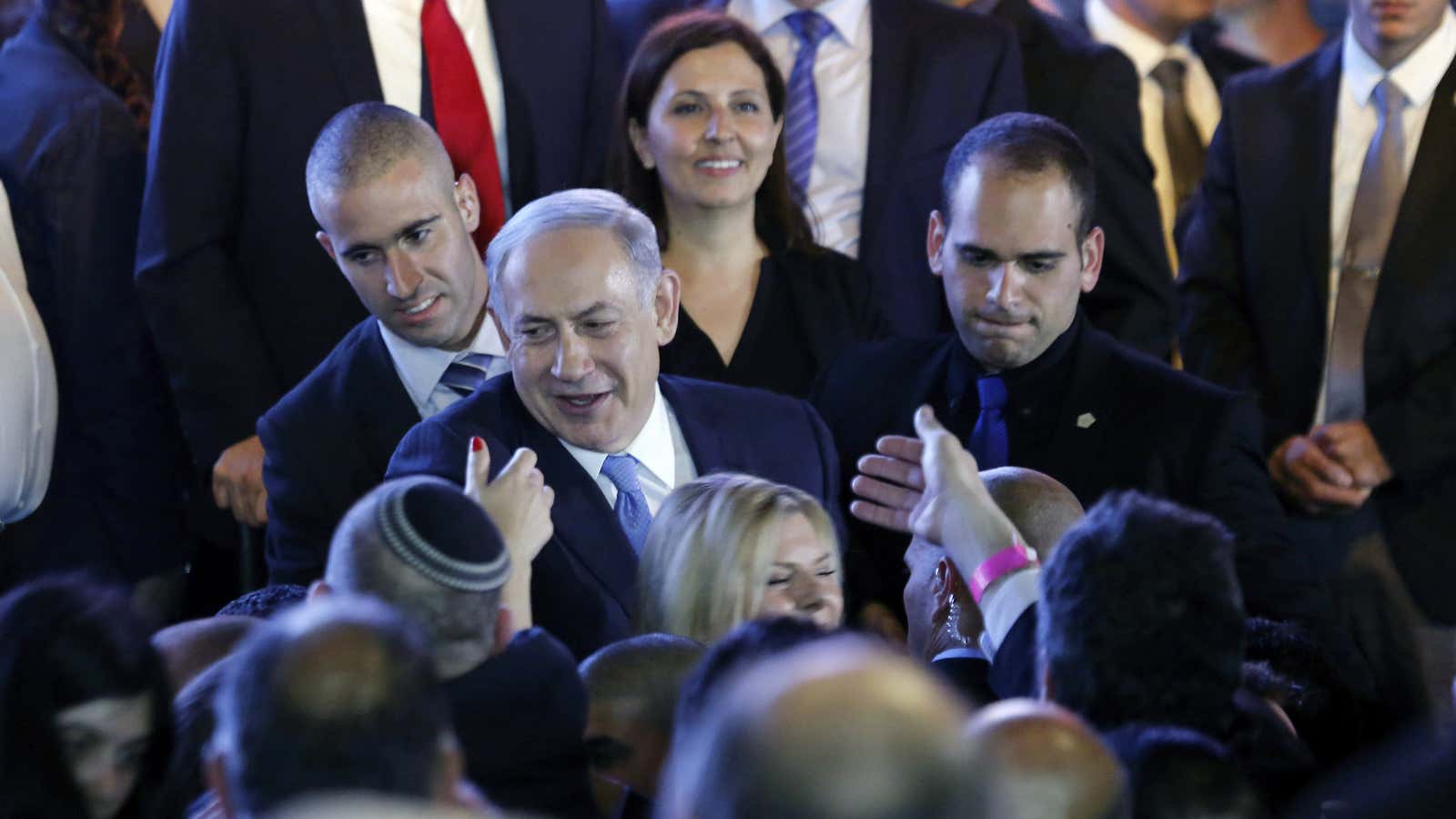Binyamin Netanyahu’s resounding re-election in Israel hasn’t worsened the chances of striking a nuclear deal with Iran, the US claims. His hostility to any nuclear accord will simply go on as before—no better, no worse.
But this is a hopeful, yet highly improbable, post-mortem to Netanyahu’s decisive victory. Instead, his re-election significantly raises the bar for western-led negotiators working toward a deal by the end of the month with Iran. Look for greater antagonism toward any Iran deal—from Netanyahu himself, and from the US Congress, where opponents of any accord are likely to be emboldened by the election outcome.
Netanyahu, like standard politicians everywhere, staked positions only to get elected, some analysts now tell us, such as his election-day distress signal that Israeli Arabs were voting in large numbers. He will soon reverse himself, they say.
In their defense, Netanyahu has already attempted to walk back the astonishing suggestion that Israel’s Arabs—20% of its population—should not have the temerity to vote.
But the more prudent posture would be to take Netanyahu at his word, and that means in his view—which is highly influential in Congress—no Iran deal is possible unless Tehran repudiates nuclear weapons and its Middle East policy, effectively becoming an Israeli ally. In other words, though he did not cover this ground on the campaign stump, Netanyahu opposes any deal with Iran.
The landscape favors Netanyahu
One reason why Netanyahu has been so unapologetically strident is that by and large events in the Middle East have gone his way. Most of Israel’s principal enemies have been knocked on their heels recently—Syria, Hamas, and Hezbollah among them. Though no one is going to throw their arms around each other, other traditional rivals now have common cause with Israel on the issue of both ISIL and Iran, including Egypt and Saudi Arabia. In other words, for Netanyahu, there simply is very little pressure to compromise.
That’s why two weeks ago you got Netanyahu barnstorming through Washington in order to ridicule president Barack Obama’s Iran policy on live national television. And this week on election day, you got Netanyahu, in a panic, flatly reversing his prior embrace of a Palestinian state and publicly disenfranchising Israeli Arabs.
There will likely still be a nuclear deal. Hardliners in both Tehran and Washington will become more shrill against any accord—after all, hysteria unfolded as presidents Ronald Reagan and George HW Bush struck their historic agreements with the Soviet Union, too.
Yet, as with the Soviet accords, the deal will be done because the timing is right—the benefits are high for both sides, and the drawbacks are just as great if there is no agreement.




